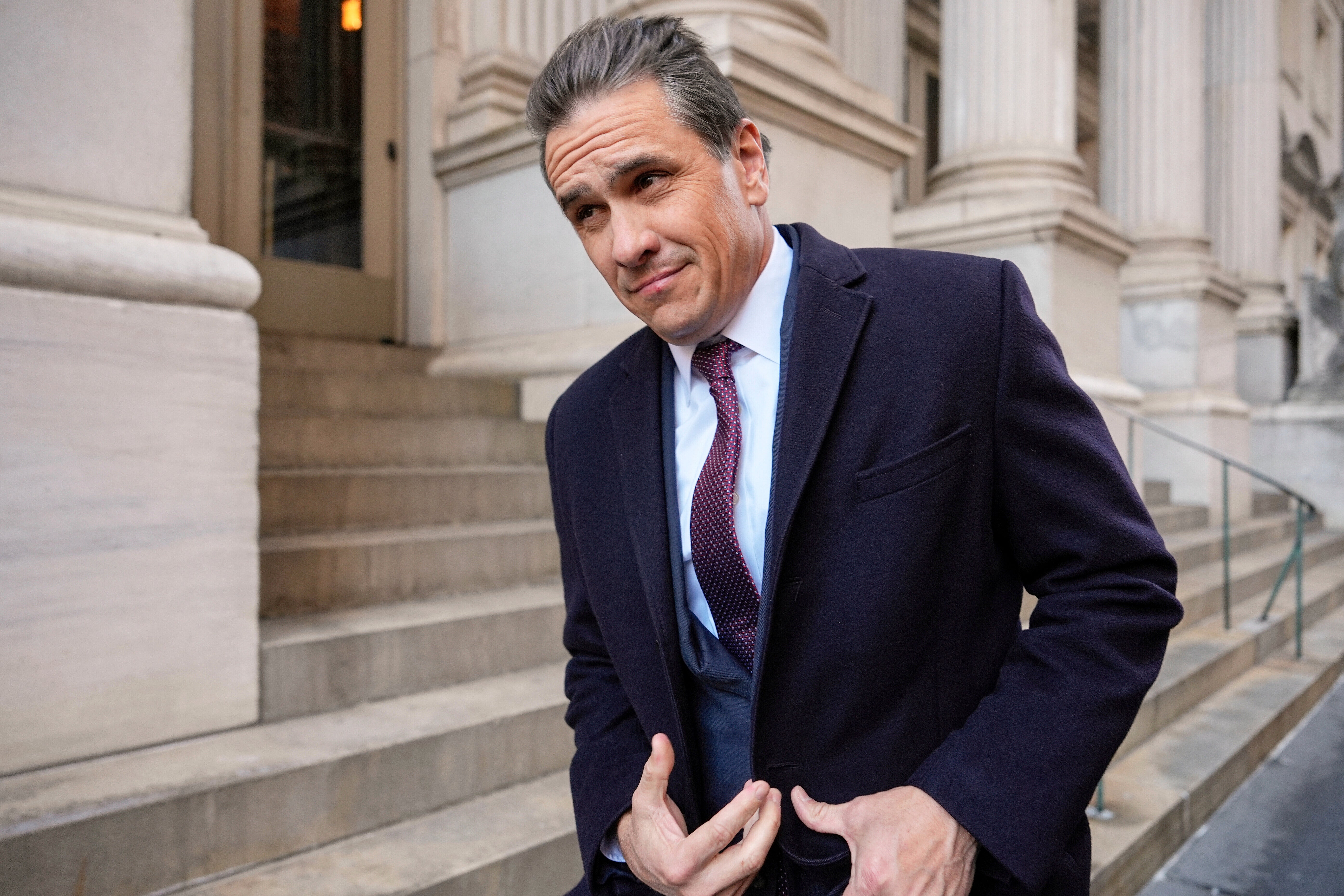
| Published August 5, 2025
🎙️ Inside the Maxwell Interview Drama: Audio, Transcript—and Politics
A Recording Nobody Knew Existed
In late July 2025, Deputy Attorney General Todd Blanche—a longtime associate of former President Trump—interviewed convicted Epstein aide Ghislaine Maxwell in Tallahassee. That session was fully audio‑recorded, a surprising revelation given no prior public acknowledgment of the recording.
On the Table: Release of Audio and Transcript
Trump administration officials are now weighing whether to release both the audio recording and a transcript of Maxwell’s DOJ interview. Although transcripts are currently being prepared, no final decision has been made as of early August. Any release would likely be heavily redacted to safeguard victim identities.
What Maxwell Said—and Why It Matters
According to her lawyer, Maxwell purportedly cooperated fully and answered “truthfully” and “honestly” about her knowledge. During the session, she reportedly identified some 100 individuals associated with Epstein’s network, fueling speculation she’s angling for leniency or a pardon. Legal experts caution that Maxwell had incentives—and a history—to lie, making her testimony legally and politically contentious.
Controversy Over Blanche’s Role
The selection of Blanche—who previously served as Trump’s personal attorney and received millions in political donations from Trump-linked entities—has raised concerns about conflicts of interest and the independence of DOJ investigations. Critics say it deepens suspicions about political influence over legal processes.
🔄 Broader Fallout: Congress, Grand Juries & Prison Transfers
Congressional Pressure Intensifies
The House Oversight Committee, led by Rep. James Comer, has issued subpoenas to DOJ and documents related to Epstein, demanding files by August 19, 2025, and scheduling depositions for key figures including Bill and Hillary Clinton, plus former AGs and FBI directors, through October.
Battle Over Grand Jury Materials
DOJ has requested a court’s permission to unseal grand jury transcripts from the Epstein and Maxwell indictments, citing public interest. Maxwell’s legal team argues the materials are incomplete and could prejudice her ongoing appeal. Notably, the grand juries heard from only two witnesses—an FBI agent and an NYPD detective.
Maxwell’s Transfer Sparks Suspicion
Maxwell, convicted in 2021 and serving a 20‑year sentence, was recently transferred from a federal prison in Tallahassee, FL to a low‑security facility in Bryan, Texas. Critics view the move as exceptionally lenient, raising questions about whether it’s tied to her cooperation or potential deal with DOJ or the White House.
🧭 Why It Matters
-
Transparency vs. Cover‑up: Making the audio public could offer rare insight into Maxwell’s claims and expose Epstein’s broader network. Yet anything released will be sanitized—meaning real impact may be limited.
-
Political optics and institutional credibility: Blanche’s direct involvement and Trump’s lingering connection to Epstein raise fears that justice may be compromised by politics.
-
Legislative escalation: Congressional subpoenas and growing public pressure point toward a constitutional showdown over executive branch transparency and accountability.
-
Legal stakes for Maxwell: Whether through a Rule 35 sentence reduction or a presidential pardon, Maxwell’s cooperation could have major consequences—both for her life behind bars and for broader political wounds. That said, offering leniency to a convicted trafficker carries high political risks for Trump.
📅 What’s Next to Watch
| Timeline | Event |
|---|---|
| By Aug 11 | Maxwell’s deposition before the House Committee |
| By Aug 19 | DOJ must produce Epstein-related DOJ files |
| Early October | Depositons for key figures including the Clintons |
Meanwhile, whether the administration chooses to release Maxwell’s recorded interview—and in what form—will be a defining moment for its credibility on transparency and legal probity.

Ghislaine Maxwell, 63 (right), was the ex-girlfriend of disgraced financier Jeffrey Epstein (left), and is currently serving a 20-year prison sentence after her 2021 conviction for her role in a scheme to sexually exploit and abuse multiple girls. Officials are weighing up whether to release a transcript of an interview between her and DOJ officials (US District Court for the Southern District of New York)

It was not previously known that such a recording existed, and officials are currently discussing whether or not release a transcript of the discussion between the British socialite and Deputy Attorney General Todd Blanche (AP)
 Implications:
Implications:
Here are the key implications—legal, political, institutional, and cultural—arising from the Ghislaine Maxwell interview recording and its potential release:
⚖️ LEGAL IMPLICATIONS
1. Precedent-setting DOJ Transparency
-
If the DOJ releases the audio or transcript of a high-level, sensitive interview involving a convicted sex trafficker, it sets a new precedent for transparency in politically charged cases.
-
However, this could also discourage future cooperation from witnesses or defendants in federal investigations, who may fear public exposure.
2. Impact on Ongoing Appeals or Sentencing
-
Maxwell’s legal team may use the interview to support a Rule 35 motion (sentence reduction for cooperation).
-
If her information proves useful, new indictments could be filed against Epstein-linked individuals, leading to revived or expanded prosecutions.
🏛️ POLITICAL IMPLICATIONS
3. Trump Administration Risks & Rewards
-
Releasing the tape could signal Trump’s commitment to transparency and holding Epstein’s network accountable—something many of his supporters have demanded.
-
But it’s also a double-edged sword: Maxwell could implicate figures close to Trump, leading to political blowback if the recording reveals damaging ties.
4. Congressional Investigations Gain Momentum
-
The House Oversight Committee’s aggressive subpoenas signal an escalating confrontation with the DOJ and possibly the White House.
-
If the DOJ resists producing the full materials, it could result in court battles, contempt votes, or calls for a special prosecutor.
🧨 INSTITUTIONAL IMPLICATIONS
5. Perception of DOJ Independence at Risk
-
The appointment of Todd Blanche—Trump’s former attorney—to lead the interview creates a clear appearance of conflict of interest, damaging DOJ credibility.
-
If Blanche appears to shape the investigation in ways that benefit Trump politically, it undermines public trust in the department’s neutrality.
6. Possible Political Weaponization
-
The timing and content of the release—if selectively redacted or leaked—could be seen as weaponizing law enforcement for political gain.
-
This risks turning the DOJ into a partisan tool, further destabilizing its reputation during a volatile election year.
🧠 SOCIAL & CULTURAL IMPLICATIONS
7. Renewed Spotlight on Epstein Network
-
A public release could reignite global interest in Epstein’s client list, potentially triggering new media investigations, lawsuits, and social pressure on named individuals—even if they’re not charged.
-
Victims and advocacy groups may demand justice and institutional accountability from governments, corporations, and elite networks.
8. Public Cynicism vs. Civic Pressure
-
If the release appears heavily redacted or choreographed, it could deepen public cynicism—especially among those who already suspect a cover-up.
-
On the flip side, it could catalyze grassroots activism, especially if previously unknown names are exposed.
🔮 STRATEGIC CONSIDERATIONS
9. Maxwell’s Endgame
-
Her cooperation might be a calculated move to earn a commutation, relocation to a safer facility, or future clemency—raising ethical questions about leniency for high-profile traffickers.
10. Global Ripple Effect
-
If foreign nationals or dignitaries are implicated, it could strain diplomatic relationships and trigger international probes, especially in countries like the UK, France, or Israel—where Epstein reportedly had ties.
 Overall Takeaway:
Overall Takeaway:
The revelation that the Department of Justice recorded its interview with Ghislaine Maxwell—and is now weighing whether to release the audio and transcript—marks a pivotal moment in the long, tangled saga of Jeffrey Epstein’s criminal empire. With nearly 100 names reportedly mentioned, and a former Trump attorney overseeing the session, the situation sits at the explosive intersection of justice, politics, and public trust.
Whether the recording is released or not, the implications are already unfolding. Legal accountability may widen—or stall. Institutional credibility hangs in the balance. And politically, both the Trump administration and its critics face high stakes: transparency could vindicate or implicate, depending on what the public hears.
One thing is clear—this is no longer just about Epstein or Maxwell. It’s about whether the American justice system can pursue the truth, even when that truth touches the most powerful people in the world.
SOURCES: THE GATEWAY PUNDIT – Report: Trump Admin. Has Audio Recording of Interview With Ghislaine Maxwell and is Considering Releasing the Transcript
NEWSWEEK – Donald Trump’s DOJ May Release Ghislaine Maxwell Interview: Reports
THE INDEPENDENT – Trump team weighs releasing Ghislaine Maxwell’s interview with DOJ officials over Epstein case: report





Be the first to comment